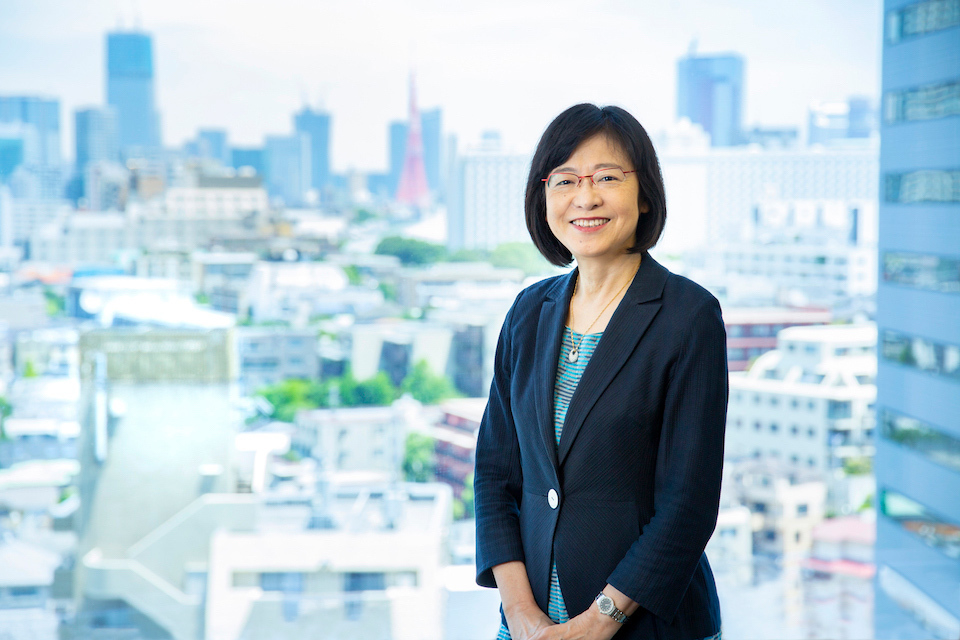In June, a grand design and action plan was compiled to implement the new form of capitalism advocated by Prime Minister KISHIDA Fumio. “Two birds with one stone”—the plan, which seeks to both solve social problems and achieve economic growth, focuses on several investments, including investments in people.

While capitalism’s advance has brought about significant growth for the global economy, it has also created such problems as growing social disparities, climate change, and issues of economic security. That is why the Kishida administration considers a revision of capitalism an urgent matter and has advocated a new form of capitalism as a crucial, future-oriented policy for Japan.
Concrete policy measures were announced in June in the Grand Design and Action Plan for a New Form of Capitalism. Based on the concept of a virtuous cycle of growth and distribution and the development of a new post-pandemic society, the document lays out the four pillars of priority investments. Aiming to solve social problems and achieve economic growth through new private-public cooperation, the four pillars will realize a new form of capitalism for the sustainable well-being of all citizens. Those pillars are: investment in and distribution to people; targeted investment in science, technology, and innovation; accelerating establishment of startups and promoting open innovation; and investment in GX (green transformation) and DX (digital transformation).
Topping that list is investment in and distribution to people. In order to exercise creativity in this modern age, in which we experience huge waves of transformation, people are becoming increasingly important. It is people who will solve the issues facing society, such as responding to climate change. Increasing value by investing in people is therefore becoming extremely important in the face of labor shortages for Japan.
Investment in and Distribution to People
- Promoting wage increases
- Facilitating labor mobility through skill increases
- Moving from savings to investment: formulation of the “Doubling Asset-based Incomes Plan”
- Supporting the efforts of all generations, including children, working adults, and the elderly
- Respect for diversity and flexibility of selection
- Formulating guidelines and strengthening disclosure to the stock market of non-financial information, such as human capital
According to OKINA Yuri, chairperson of the Japan Research Institute and a member of the Council of the New Form of Capitalism Realization that formulated the policy plan, this investment in people represents the vision for the future to which the new form of capitalism aspires. She said, “It is important to act in an integrated fashion. That means raising wages to match productivity; facilitating labor mobility through skill increases such as retraining; promotion of working multiple jobs and assistance for re-employment; and supporting the activities of all generations to enable them to thrive, as well as shifting personal financial assets from savings to investment. This will lead to prosperous lives and well-being for citizens and growth for the country. Such a virtuous cycle is the key point to creating a new form of capitalism.”
Okina has especially high hopes for creating a society in which young adults and women can thrive further. “Now is a time when the products and services that will succeed are those with high added value from the application of assets such as ideas, creativity, and data. At the same time, those are fields in which young adults—the leaders of tomorrow—can demonstrate their strengths. I expect positive results from initiatives that further encourage startups and side businesses from this generation, known for giving considerable thought to addressing social problems.”

OKINA Yuri is an economist, chairperson of the Japan Research Institute, and a member of the Council of the New Form of Capitalism Realization. She explains how her career advancement was achieved by changing jobs. She also points out that the pandemic has changed how people work and has provided a good opportunity for progress toward better working arrangements.
Okina also talks about the grand design’s vision, which perceives the problems facing society not as hurdles, but as sources of energy, thereby becoming new drivers of growth as they are solved. “The rapid spread of online meetings and remote work during the pandemic has enabled flexible working arrangements, and I’ve heard from many people that their work-life balance has improved. In other words, these individuals are demonstrating how to turn challenges into positive change.” In the future, the market and the state will work together in new forms of public and private cooperation that endeavor to solve social problems.
Prime Minister Kishida’s belief that valuing people will lead to growth is the foundation of the new form of capitalism. The aim of implementing the concept is not limited to Japan’s development. It also involves taking the lead in addressing issues affecting the global economy and the international community. Now that the grand design and action plan have been compiled, the world’s attention will be on Japan’s next steps.


